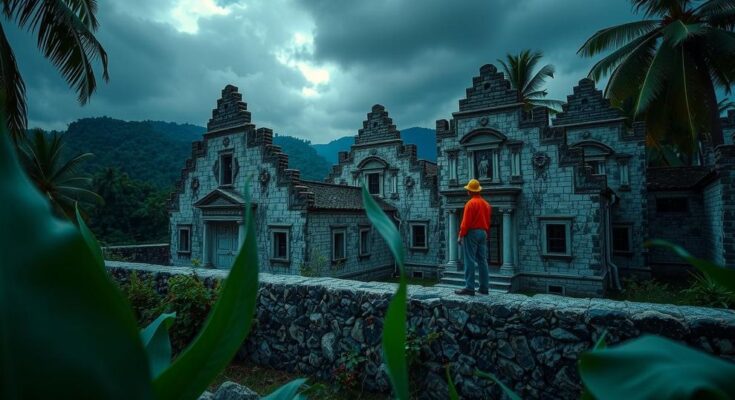Authorities in DR Congo are investigating vandalism at the mausoleum of Patrice Lumumba, whose tooth is thought to be the only remaining relic of the independence leader. The tooth was returned to his family in 2022 after being taken by a Belgian policeman post-assassination. Although the site was found empty, it is unclear if the tooth was stolen. Lumumba’s daughter condemned the act, reflecting the national sentiment surrounding his legacy and ongoing discussions about the impact of historical events on current governance in the country.
Authorities in the Democratic Republic of Congo are currently investigating vandalism at the mausoleum that contains the only known physical remnant of independence leader Patrice Lumumba, specifically, his tooth. Lumumba served as the country’s first democratically elected prime minister in 1960 but was assassinated in 1961 after a brief three-month tenure following a coup. The tooth, which was reportedly acquired from his body by a Belgian policeman who claimed to have disposed of much of Lumumba’s remains, was returned to his family in 2022. A police spokesperson indicated that the mausoleum had been found empty, although it remains unclear whether the tooth was stolen. The Congolese culture ministry stated that measures have been taken to secure the site, and an investigation has commenced to ascertain the circumstances surrounding this incident. Patrice Lumumba is revered in DR Congo as a pivotal figure who played a significant role in the country’s struggle for independence from colonial rule. His government’s downfall ushered in decades of dictatorship and exploitation of national resources, leading to a long period of instability. Historians attribute Lumumba’s assassination to Cold War dynamics, as his appeal for assistance from the Soviet Union alienated Western powers, particularly Belgium and the United States. While local separatists are often blamed for his killing, questions about foreign complicity linger, particularly concerning the United States and Belgium due to Lumumba’s leftist affiliations. In light of the recent vandalism, Lumumba’s daughter, Juliana Lumumba Amato, condemned the act as “a despicable and incomprehensible act.” She highlighted the sacrifices her father made for his country, expressing her discontent with the lack of information provided by the government regarding this incident. Meanwhile, the Congolese Minister of Communications has not commented on the situation, leaving families and historians alike awaiting further updates. This incident has sparked outrage not only among family members but across the nation, as it further exposes the fragility of the legacy Lumumba left behind. Many in DR Congo view him as an emblem of national pride and the potential that the nation could have achieved had his leadership not been cut short. The investigation aims to uncover the truth and bring clarity to this disturbing breach of the mausoleum, which stands as a significant site of national heritage.
Patrice Lumumba was the first democratically elected prime minister of the Democratic Republic of Congo following its independence from Belgium in 1960. His government, however, was short-lived, lasting only three months before he was overthrown and subsequently assassinated in early 1961. Lumumba is often regarded as a nationalist hero who sought to end colonial rule and has been recognized as a symbol of hope for many Congolese people. His assassination is frequently viewed within the context of the Cold War, highlighting the geopolitical tensions of the era that complicated both local and international politics in Africa. His remains, particularly his tooth, hold significant cultural and historical value as they represent a painful chapter in the country’s quest for identity and governance after colonialism.
The investigation into the vandalism of Patrice Lumumba’s mausoleum underscores the ongoing struggles related to his legacy within the Democratic Republic of Congo. As authorities work to uncover the events surrounding the incident, the expression of outrage from his family and the public signifies a deep respect and remembrance for a leader whose vision for the nation remains unfulfilled. The examination of historical narratives about Lumumba continues to be pertinent as the country grapples with its past and future aspirations for governance and stability.
Original Source: www.northweststar.com.au




